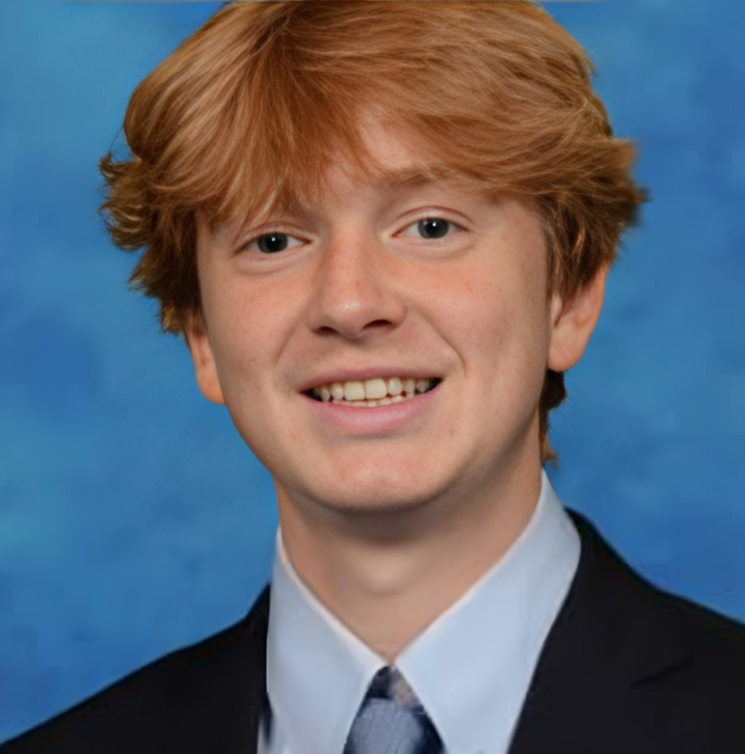By Peter Eiswert
A Reflection on the Student Body Government
Now a few months removed from a school under the leadership of Pitman Smyth, it is appropriate, while early, to reflect on his legacy. A student body president’s short year seems defined by a few memorable events. All of these events are only loosely under the influence of the president: prom ticket price and location, student sections at silent night, and class participation during assembly. Arguably the most noticeable undertaking of the President, the slogan on the year, is completed before the school year even begins. “Unleash the Hounds,” Pitman’s slogan framed the year as an epic return to Gilman Greatness, but upon reflecting on the year, and surveying other students the most common observation was that his term as president was “fine,” not bad or great. This is not an insult to Pittman’s leadership, but rather a symptom of High School Student Government. The truth is that as president you're not that powerful, and you really can’t get that much done.
This observation then begs the question, what is the role of Student Government at Gilman?
This question is not on the importance of student governments to all high schools, but rather specific to the Gilman community. To begin to search out the answer I first spoke with Sophomore Class PresidentTim Woo. When asked what makes one a part of Gilman, Woo reflected on it as above all a “feeling.” What role, then, does the sophomore class president have in facilitating this feeling in his grade and the rest of the student body? Woo, like me, believes that the most crucial role of the sophomore class president is “representation.” Sit in on the speeches of any high school student government election and pinch yourself everytime someone mentions representation. “I will be your voice….” “Tell me your ideas and the school will listen….” These promises, while enticing in theory, are as empty as the suggestion boxes and Google Forms created to fulfill them. The influence that a Sophomore president has on major decisions for his class is little to none. Other than a Chick-fil-a sale or an activity in form, this role of representation is not one in the sense of representing the wishes of his class. This role of representation is that of a role model. When ending the interview with Woo, I asked what an ideal student body president would do. His answer spent no time on events and advisory tournaments and student sections, but rather on the president’s job of “reaching out on a person to person level.”
This reaching out however, is not simply the senior speech rite of passage of “Saying Hey”. Saying, “hey,” in the hallway is easy. The members of the student council, as the most public display of the school, must strive for more. To be on the student council, as is to be a student at Gilman and a member of the Gilman community, is to accept a challenge.
To better understand this challenge I connected with Student Body President Frank Siciliano. When asking again what makes one belong to the Gilman community I was met with the same response: a “feeling”. Siciliano continued however, that when integrated into the community there comes “expectations to act with the Gilman Five or strive to be as closely oriented with those values as possible. This is not an easy task, but rather a daily struggle. This struggle is what makes student government uniquely important at Gilman.
The idea that being part of the Gilman community constitutes striving for excellence is both important in creating excellence within the student body, and fostering a welcoming environment. A freshman should look to the student body president and the members of the student council, students whose roles are evidently connected to the Gilman community, and see the clear attributes that make one a Gilman student. This observation of the student government’s secondary role in creating events and making changes to the school does not make it less important, but rather exemplifies why it is so important. The Gilman Student Government must be the face of what it means to be part of the Gilman community, selflessly giving up their time and energy to support their classmates.
Given this idea of the Student Government as a means of inclusivity in the community it is ever so important that the freshman chapter of the student government be removed. Taking place only a few weeks into school, these elections are dominated by students who attended Gilman Middle School. This could immediately create a feeling of isolation for students from outside schools, and create a false pretense of what it means to be a student leader. Additionally, as a freshman in high school, students often lack the footing and social security to provide a good example and model to follow. The freshman should instead look to the sophomore, junior, and senior leaders for instructions on how to be Gilman.
Now a senior, I can not remember any of the policies implemented by Mac Nichols ‘22 during his leadership my Freshman year, but I can remember how he carried himself. I can remember him approaching me as I worked on a watercolor project for Mr Connelly, while I sat on the terrace benches. I do not remember what he said, but I remember the impact it made on my ability to understand the “feeling” of belonging that the previous interviewees discussed. I am sure that many juniors below me have similar stories in regard to Ben Weinfeld, and sophomores below them in regard to Pitman. This willingness to reach out and display of holding oneself to a high standard, in my opinion, is the role of Student Government at Gilman.

